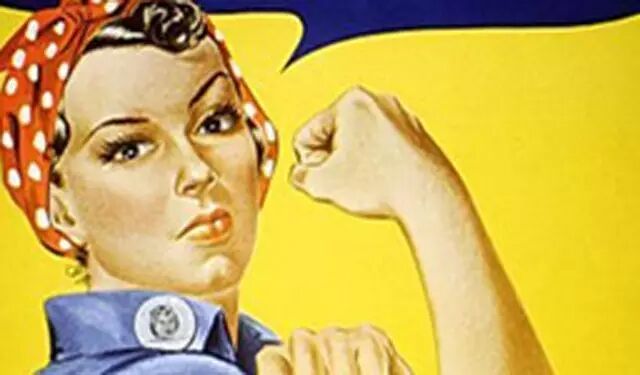
文 | 荣筱箐
我大学的古文老师,上课时经常把欧阳修的“逸马杀犬于道”挂在嘴边,教导我们这是中国文字言简意赅的最高境界。要是现在我跑去跟他说我觉得“然并卵”和“普大喜奔”也挺言简意赅的,不知道他会不会气得拍着桌子大骂:“那就不是人话。”所以我还是不去招惹他,为尊者讳也不提他的大名,这样老师就算搜索自己的成就时也不会撞见这篇文章,相当于贴小黄文儿时事先屏蔽了父母,咱们就可以肆无忌惮地说话了。
说的这个事是《纽约时报》9月10号登出来的一篇观点文章,标题是:“The Bitch America Needs”,直译是《美国需要的那只母狗》。那只“母狗”说的是希拉里,文章大意是说她那种风风火火铁腕强势的形象与人们对女性的传统期待大相径庭,这样的人通常被男权至上的反对者们骂做“bitch”,实际这些却是作为一个国家领导人所必备的素质。

文章见报后引起了不小的风波,读者来信蜂拥而至,质问一家正经的报纸怎么会把这样一个不正经的词公然用在标题里。时报体系内专职维护读者利益的公共编辑也在两天后发表文章,以《标题里不需要的那个词》为题亮明观点。
但写到这儿我忽然意识到,这样说下去并不能把这个事说清楚。虽然英文的“bitch”中文直译的确是“母狗”,但这个英文词前世今生在内涵和使用范围上微妙的流转和演变并不能在这个中文词的定义中完全反映出来,对于中文读者,用“母狗”做参照来判断“bitch”这个词用在报纸的标题上是否合适,就好像要凭一张镜像照片来判断从未谋面的网友的颜值,就算他老老实实不用滤镜不修图,真见到了也难免大吃一惊——真人毕竟是三维的。
中国国内有网站在谈论这件事时把“bitch”译作“婊子”,这种译法在小说里比较常见,但这并不是说这两个词就完全对等,只不过在虚构作品里,这两个词置换一般并不会影响到故事情节的发展,也就没人深究了。现实生活就要麻烦得多,两个词含义上的细微差别可能让它们的置换引起轩然大波。
比如最近菲律宾总统在记者会上用当地土话公然辱骂美国总统奥巴马,原话是“Putang ina”,很多美国媒体把这句话译成“son of a bitch"(狗娘养的),而共和党总统候选人川普在他的推特上提到这件事却用了“son of a whore" (婊子养的),引发来自进步派阵营的一片骂声,说他故意这样用词以侮辱奥巴马的白人妈是跟有色人种乱搞的“婊子”,可见这两个词虽然都属粗口,但在美国人心中仍然是尊卑有别。
有趣的是如果你纵观上下数百年的英文词汇史,“whore”的地位基本没有变化,但“bitch”的地位却是今非昔比。英国词学家Francis Grose 1785年编撰的《市井粗词字典》对“bitch”一词的解释是:“母狗,对女性最恶毒的辱骂,比婊子更甚。在伦敦的下等街区常听到的说法是:‘我或许是个婊子,但绝不是母狗。’”可见至少从这两个词的相对位置来看,“bitch”如今已是咸鱼翻身。
实际上除去村妇莽夫间口不择言的对骂,用“母狗”来辱骂女人真正在英文世界里流行开来是在1920年代,那时候随着女权意识的觉醒,一些女人开始追求惊世骇俗的人生,引起掌握话语权的男人们的不满,他们在自己的传世名作中把这类女人叫做“母狗”,其中典型的代表就是以硬汉著称的海明威。
但到了当代,话语权不再是男人独掌,独立自强说话有了底气的女人们开始从男人们手中夺回这个词,给她赋予了新的意义,如今闺蜜之间互称“bitch”已经变得稀松平常。为时报撰写那篇观点性文章的作者Andi Zeisler出生于70年代,是个小有名气的专栏作家,专门关注女权话题。1996年她和闺蜜一起创办了如今红红火火的杂志《母狗》,从女权主义的视角报道和分析当今的流行文化。
为什么要力捧这个粗口词?Zeisler在时报的那篇文章里说的很清楚:“让‘bitch’成为粗口的那些特质,换个角度看也可以让这个词闪闪发光,完成这种视角转换只需要指出‘母狗们’被人诟病的那些表现,比如拓展自己的影响力、为理念而战、不受淑女规范的束缚等,不仅是正常的,而且是必要的。”
所以从发展和使用来看,“bitch”更接近于中文中的“贱人”,它正处于从泥淖沟渠到登堂入室的途中,在这个交界口没有规矩可言,它可以被用在仇人身上,也可以被用在亲人身上,是褒是贬完全取决于语境。对于语汇来说,时间就是洗衣机转动的滚筒,一个词在时间中洗白或洗黑,先洗白再洗黑,先洗黑再洗白都不少见,词汇的生命本来就来自于时代的文化。
周立波今年夏天在纽约卡内基音乐厅演出的那场“唱时代的歌,说自己的笑话里”里对这种变化有过经典的描述,他先是暗示了“靠”字在传统词典和现今网络词汇中含义的区别,然后再带领观众(基本都是华人)合唱了那首曾经风靡一时的《大海航行靠舵手》。一个词的从华丽到市井的转身中带出的喜感,对明白来龙去脉的人来说不需要解释。
但从白到黑很简单,从黑到白就是另一个故事了。一个词的去污名化不是在时代演进中守株待兔就能等来的,很多时候这需要权益意识的觉醒和建立在勇气和自信基础上的不懈抗争,和世界抗争,也和自己抗争。

前几年年轻的华人剧作家余秀菊(Lauren Yee)写过一部黑色幽默话剧叫《Ching Chong Chinaman》,在纽约推出时引起众多老一代华人的抵制,他们在华人地位低下的年代里长大,常被人用“Ching Chong”来取笑或被骂作“Chinaman”,这两个词出现在话剧的标题里,即使是幽默也让他们无法容忍。
但那时还是大学在校生的余秀菊成长在一个不同的年代,她在三藩市读高中时,班上差不多三分之二的学生都是亚裔,她从没被人用这些词骂过。只有一个逐渐强大的群体才能支撑起足够强大的内心,才能让你有勇气去夺回那些被别人刻意抹黑了的关于你自己的定义,并赋予它们新的生机。就像常把“nigga”用在歌词里的黑人饶舌歌手,不再忌讳把自己叫做“queer”的酷儿,或者那些网络词汇的不知名的作者,他们改造或创造这些词汇的过程一定就像是一场狂欢——从被动到自主,从无声到有声的狂欢。
这些从旁门左道里走出来的词,刚登场时一定会为江湖上的名门正派所不耻,甚至还会有掌门人出来要清理门户。其实说起来作为正经的中文系培养出来的正经学生,我本来也应该以一本正经的捍卫语言的纯洁为己任,但我却一直离经叛道地认为所谓人话就是很多人讲的话,所谓词义就是很多人认可的那个意思,如果有新的词汇或语法在这个过程中诞生,那真的是件值得普大喜奔的事。毕竟,语言的流变从来都不是掌握在菁英的手中。
至于《纽约时报》上那篇文章,我看了好几遍觉得不可能有比那个标题更合适的标题。它不是标题党的手笔,它是实话实说有一说一,就像给这篇文章下标题的时报评论版编辑所说的“这就是那篇文章里所写的东西”。时报的公共编辑在批评这个标题的那篇文章里说:“或许有一天主流会把这个词用在那些击碎女性刻板印象,站起来为自己呛声的女人身上,但在此之前,它仍然是对女性的羞辱和贬低。”在我看来,这一天已经被时报上的这个标题开启了,呵呵。
【作者简介】
荣筱箐 | 腾讯·大家专栏作者,旅居纽约。